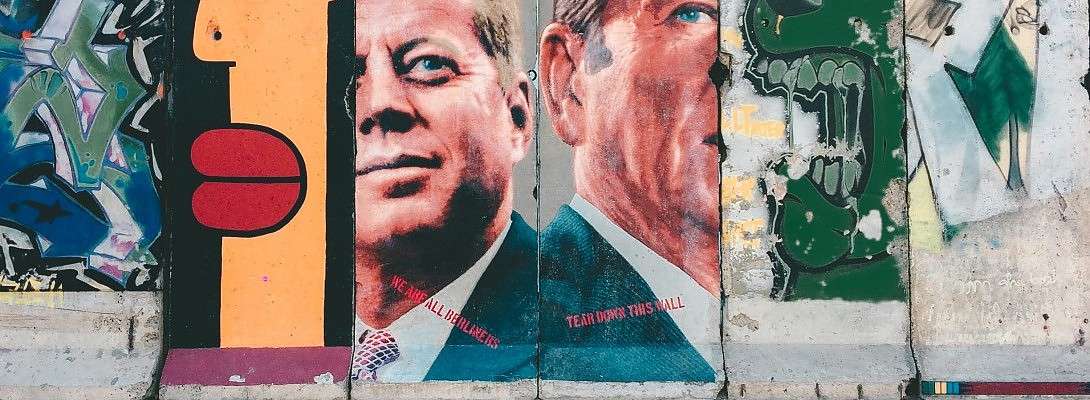the lies of the politics, an art?
The lies of the politics, an art?A few days before the end of the campaign for the presidency of the Republic (of Mexico) yes it's a republic and it's real name United States Of Mexico (Estados Unidos Mexicanos)
one of the most boring and tedious political careers of recent years in Mexico is this one, no new proposals to solve the riddles of the country; no memorable creative "sparks" by the candidates; absent from sharp criticism among the contenders. It is more then that: the anxiety before the result, own of any hard-fought competition, was located in any case in the dispute for the second place. From the first day of the campaign, there was a clear leader in the polls whose position from that moment on did not stop strengthening.
Except for a genuine surprise, the winner of the race will be the leading candidate, according to such records, since about six months ago.
In this sense, one of the few refreshing ingredients of these elections was "Verificado2018" A project, promoted by various media and civil society organizations, with the purpose of reviewing the information of the electoral campaign. One of it's main lines of work, in addition to determining the falsity of the news that circulated on the Internet, consisted of verifying which of the assertions of the candidates had sustenance. Task particularly relevant in presidential debates.
The conclusion of these exercises, a group of journalists was devoted to examine each of the statements of the participants. Thanks to this difficult work, we were able to realize that without any major sting the candidates cackled with make-up data, covers of gimmick ed magazines, images out of context, as well as non-existent or non-viable public policies. None of the candidates emerged unscathed from these investigations. On the contrary, if one reviews the work of Verificado2018, when examining the assertions of the speeches of these politicians not only during the debates but throughout all the political competition, the final balance is a motley corsage of lies.
The question, however, is whether we should expect something different from this cluster of lies. For Jonathan Swift, for example, lying is con natural to the human condition and, in particular, to political activity. The battle to conquer and maintain power simply can not be free of falsehoods. But this does not mean that there is no distinction between the fineness of the lies; that is, that the cunning of men of power is not reflected in their simulations and, in that sense, in their ability to exercise power. Indeed, in a tiny book, published in 1733, under the title of The Art of Political Lie (Sequitur, Argentina, 2006), the great English satirist offers an interesting battery of tips to cultivate that inevitable vice of politicians: lying .
In the first place, Swift considers that this art lies in convincing the people of healthy falsehoods; that is, the rulers, if they lie, must be as an instrument to achieve a commendable purpose for their governed. Such is the case, for example, of a legitimate war: impossible to achieve social cohesion around it, which is essential to win it, without lies. In another moment, the author of Gulliver's Travels points out three key lies: by increase, slander and by translation.
The first, attributes to a character greater reputation than it belongs to him; the next, snatches from a man the good reputation that was justly won; the last type of simulation, transfers the merit of a good action of a common man to another who possesses superior qualities. In all three cases, the success of the lie lies in moderation. An excessively comical compliment, a disproportionate infamy or the granting of an implausible merit, results in a weak and ephemeral lie. And if a falsehood does not meet it's objective, then, it was entirely useless: it only entails costs, but not benefits.
Another type of lies are, on the one hand, those that frighten and instill terror and, on the other, those that animate and inflame. Both are extremely useful as long as they are used properly. The first remind us of the insistence of some to paint AMLO as a danger to the country: "the indiscretion with which we have often wanted to scare the werewolf at the slightest opportunity, has contributed to the people remain so indifferent that no longer scares ... "
While in the second type, would be the benefits promised by the federal government regarding structural reforms:" Regarding those that contain any promise or prognosis, it would be unwise to fix the predictions in the short term; there would be the risk of being exposed to shame and the hurry of being soon denied and accused of being false. "
Swift's advice might seem, in a first reading, cynical. An invitation to demagogue governments. An apology for falsehood. But, rather, it is a plea for intelligence, prudence and, not least, responsibility for the consequences of actions and words in the political work. Qualities that, by the way, are also indispensable to reach the right moment to launch certain assertions. And that would not hurt our political class, to overcome the challenges that come from this July 2.
Just sayin...
Recent Comments
0
